Your feet do more than carry you through the day—they can offer clues about your overall health, including possible issues with organs like your liver. For health-conscious Americans, paying attention to foot health signs can be a simple way to stay proactive about wellness. While not every foot symptom points to a serious condition, some changes may warrant a closer look. Let’s explore what your feet might be telling you, including signs related to liver health, and learn how to care for them while staying informed.
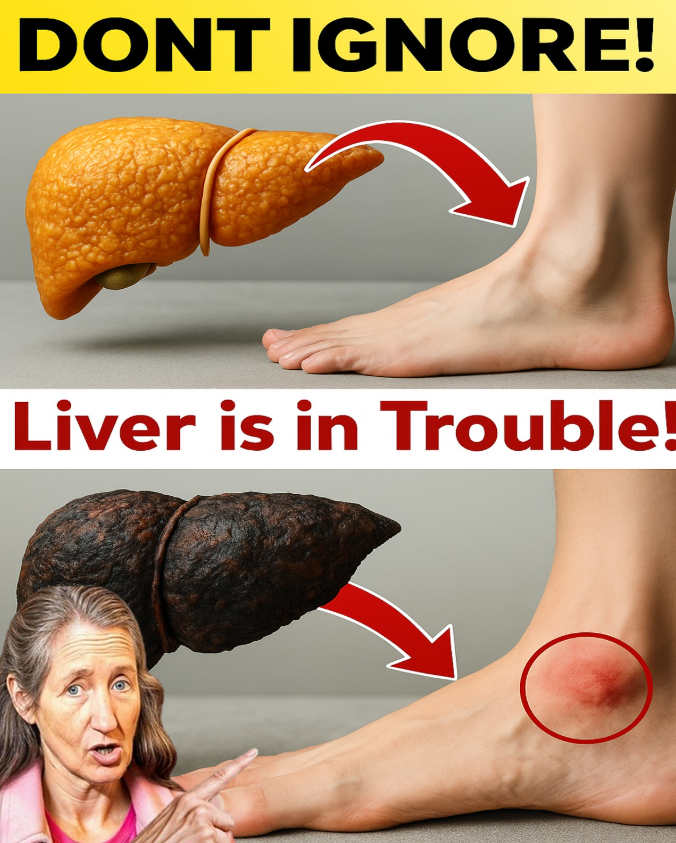
Why Your Feet Reflect Your Health
Your feet are a window into your body’s well-being because they’re connected to your circulatory, nervous, and immune systems. According to WebMD, changes in the feet—such as swelling, discoloration, or skin issues—can sometimes reflect underlying health conditions. The feet are also far from the heart, making them sensitive to blood flow changes, which can be affected by organ function, including the liver. Understanding these connections empowers you to take charge of your health.
How Feet Signal Health Issues
- Circulation: Poor blood flow can cause swelling or color changes.
- Nerve Health: Tingling or numbness may indicate systemic issues.
- Skin and Nails: Changes can reflect nutritional or organ problems.
- Inflammation: Swelling or redness may point to broader health concerns.
By noticing foot changes, you can catch potential issues early. Let’s look at specific signs, including those possibly linked to liver health.
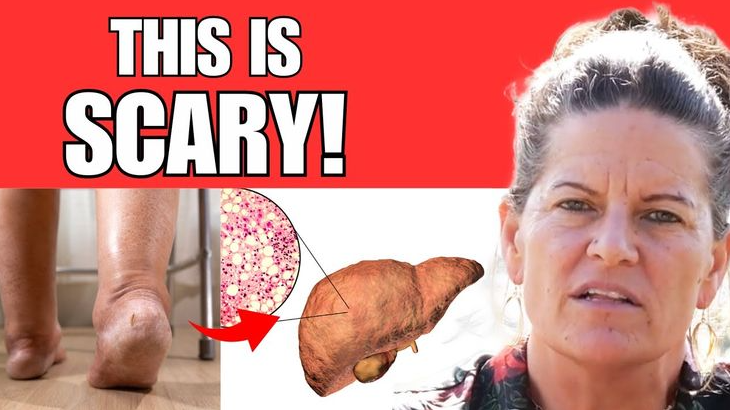
Foot Symptoms That May Point to Liver Concerns
The liver plays a key role in detoxifying the body, producing bile, and regulating metabolism, so when it’s under stress, symptoms can appear in unexpected places, like your feet. According to the Mayo Clinic, liver conditions like cirrhosis or hepatitis can cause systemic effects, including fluid buildup or skin changes. While foot symptoms alone don’t diagnose liver problems, certain signs may prompt you to seek medical advice.
Liver-Related Foot Signs to Watch
- Swelling (Edema): Fluid retention in the feet or ankles can occur in advanced liver disease due to reduced protein production, per a 2020 study inHepatology.
- Yellowing Skin (Jaundice): A yellowish tint on the feet may indicate liver dysfunction, as bilirubin builds up, notes WebMD.
- Itchy Feet: Persistent itching can be linked to bile buildup in liver conditions, per the Cleveland Clinic.
- Spider Veins: Small, web-like blood vessels on the feet may appear in liver disease, though they’re also common in other conditions.
Important: These symptoms are not exclusive to liver issues and could stem from other causes, like poor circulation or allergies. If you notice persistent changes, consult a doctor for proper evaluation. Share this health tip with a friend who’s curious about their body’s signals!
Other Common Foot Health Signs to Understand
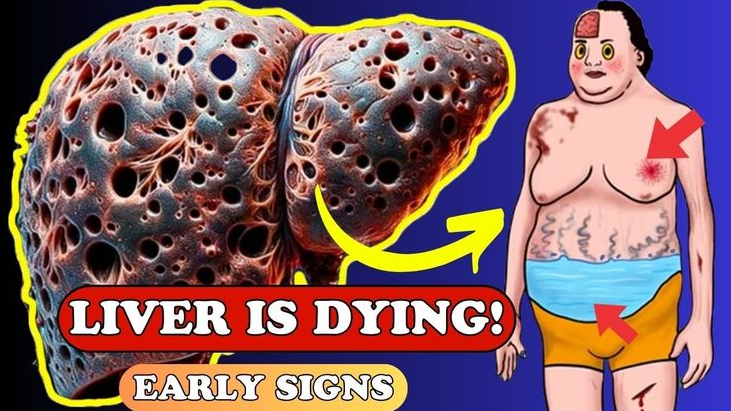
Your feet can reveal more than just liver-related concerns—many symptoms point to other health issues that deserve attention. The CDC emphasizes that early detection of systemic problems through physical signs can improve outcomes. Knowing what to look for helps you stay proactive without jumping to conclusions.
General Foot Symptoms and Possible Causes
- Numbness or Tingling: May suggest diabetes or nerve issues, per Harvard Health.
- Dry, Cracked Skin: Could indicate dehydration, thyroid problems, or fungal infections.
- Swollen Feet: Beyond liver issues, may be linked to heart or kidney conditions.
- Nail Changes: Thick, brittle, or discolored nails might reflect nutritional deficiencies or infections.
Action Step: Keep a journal of foot symptoms, noting when they start and any related changes, to share with your doctor. Awareness is your first step to better health.
Caring for Your Feet to Support Overall Wellness
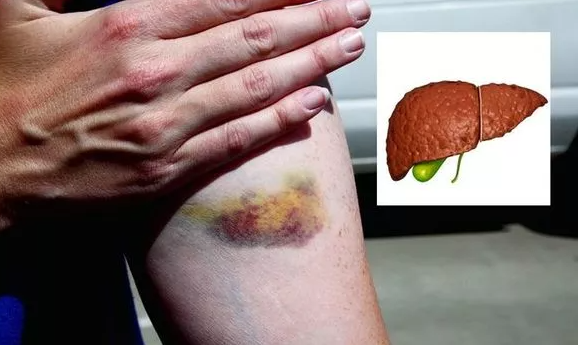
Healthy feet contribute to a healthy body, and simple care routines can prevent issues while keeping you attuned to changes. The American Podiatric Medical Association recommends daily foot care to maintain circulation, skin health, and comfort, which indirectly supports organs like the liver by promoting overall wellness.
Daily Foot Care Tips
- Wash and Dry: Clean feet daily with mild soap and dry thoroughly to prevent infections.
- Moisturize: Apply a fragrance-free lotion to prevent dryness, avoiding between toes to reduce fungal risk.
- Check Regularly: Inspect feet for cuts, swelling, or discoloration, especially if you have diabetes or liver concerns.
- Wear Proper Shoes: Choose supportive, breathable footwear to reduce strain and improve circulation.
Pro Tip: Elevate your feet for 10–15 minutes daily to reduce swelling and boost blood flow. Healthy feet mean a happier you!
When to Seek Medical Help for Foot Symptoms
While some foot changes are harmless, persistent or unusual symptoms should prompt a visit to a healthcare provider. The Mayo Clinic advises seeking care for signs that don’t improve with home care or are accompanied by systemic symptoms like fatigue, weight loss, or abdominal discomfort. Early consultation can rule out serious conditions, including liver issues.
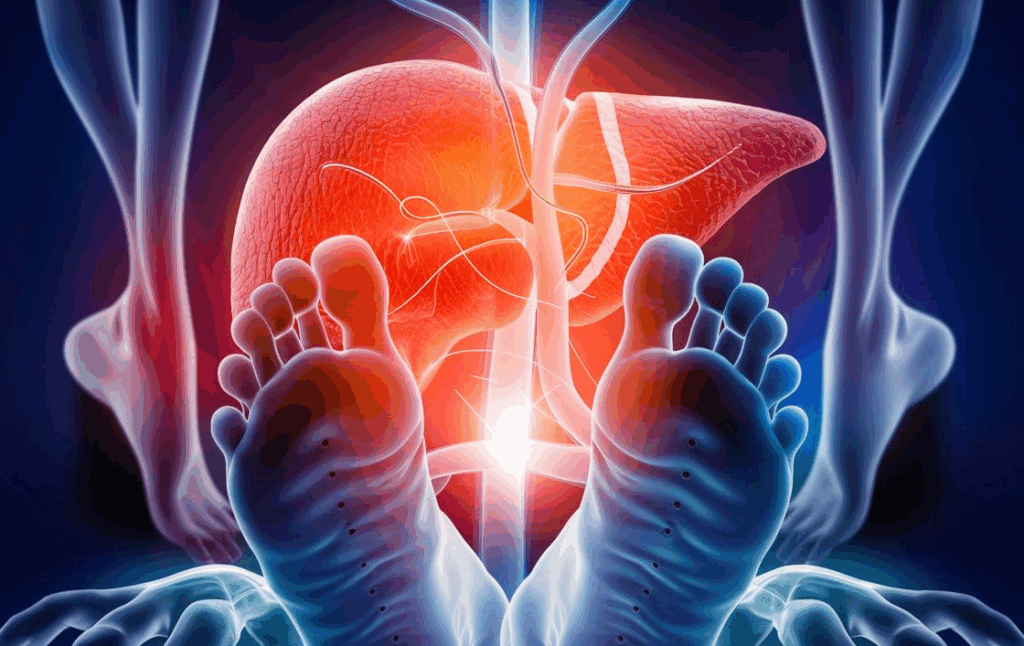
When to See a Doctor
- Persistent Swelling: Lasting more than a few days, especially with pain or redness.
- Yellowing Skin: Jaundice on feet or elsewhere requires immediate attention.
- Severe Itching: If it disrupts sleep or doesn’t respond to moisturizers.
- Systemic Symptoms: Foot changes paired with fever, nausea, or dark urine.
Resource: Contact your doctor or a podiatrist for foot concerns, or call the American Liver Foundation (1-800-GO-LIVER) for liver-related questions. Don’t delay when it comes to your health!
Lifestyle Habits to Support Liver and Foot Health
A healthy lifestyle supports both your liver and feet, reducing the likelihood of troubling symptoms. Harvard Health emphasizes that diet, exercise, and hydration play a role in liver function and circulation, which benefits your entire body, including your feet. Small changes can make a big difference in your wellness journey.
Healthy Habits to Adopt
- Eat Liver-Friendly Foods: Include leafy greens, berries, and fatty fish for antioxidants and omega-3s.
- Stay Active: Aim for 30 minutes of walking or low-impact exercise daily to boost circulation.
- Limit Alcohol: Reduce alcohol intake to ease liver stress, per CDC guidelines.
- Stay Hydrated: Drink 8–10 cups of water daily to support detoxification and reduce swelling.
Explore more wellness tips on our site to keep your body thriving! What’s your favorite healthy habit? Comment below and inspire others!
Common Myths About Feet and Liver Health
Misconceptions about foot symptoms and liver health can lead to confusion or unnecessary worry. Let’s debunk some myths to keep you informed and focused on evidence-based care.
Myths vs. Facts
- Myth: Foot swelling always means liver failure.Fact: Swelling can have many causes, like standing too long or heart issues; see a doctor for clarity.
- Myth: Yellow feet always indicate liver disease.Fact: Jaundice is one cause, but fungal infections or dyes can mimic it.
- Myth: Foot care doesn’t affect organ health.Fact: Healthy feet support circulation, which benefits organs like the liver.
By sticking to facts, you’ll approach foot health signs with confidence. Knowledge empowers proactive wellness!
Final Thoughts
Your feet can offer valuable clues about your health, including potential liver concerns, but they’re just one piece of the puzzle. By understanding foot health signs, practicing daily foot care, and adopting healthy habits, you can stay proactive about your wellness. Persistent symptoms like swelling, yellowing, or itching should prompt a doctor’s visit to rule out serious issues. For health-conscious Americans, paying attention to your feet is a simple way to support your body’s overall health—start today and keep those feet happy!
Disclaimer: This article is for informational purposes only and does not substitute professional medical advice. Consult your doctor before making health changes.